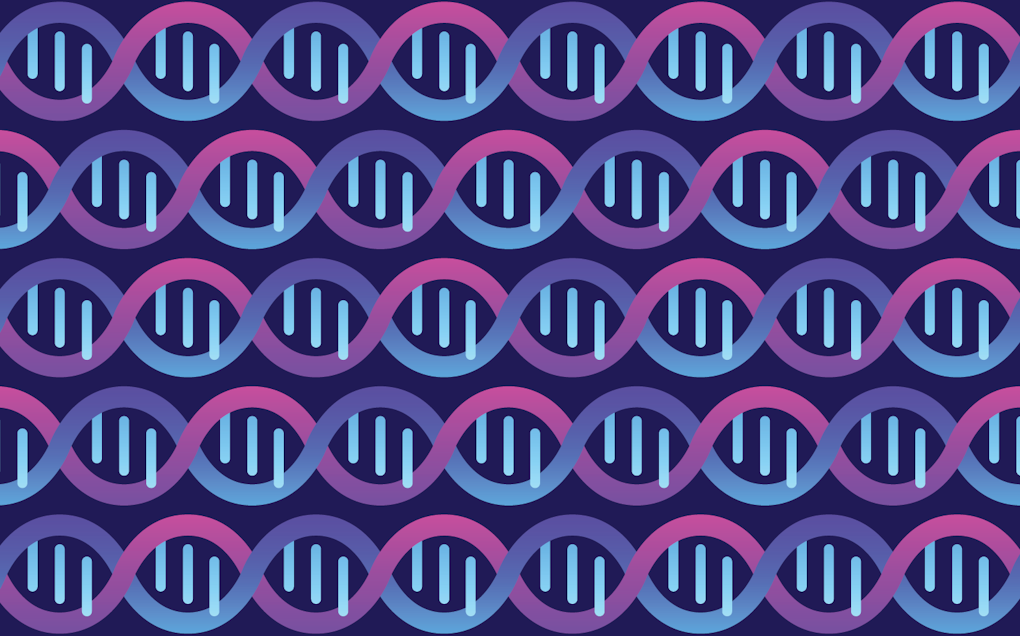
Tasty_Cat/Shutterstock
A recent study1 led by SFARI Investigator Evan Eichler and the SPARK Consortium has identified new autism spectrum disorder (ASD) inherited genetic risk variants. Collectively, these rare variants contribute as much risk as de novo mutations. The findings were made possible through the analysis of DNA from a large number of families with ASD, with over 50 percent of the genetic data coming from participants enrolled in SPARK (Simons Foundation Powering Autism Research)2.
Over 170 genes and copy number variants (CNVs) have now been linked to ASD, with the vast majority of these being de novo gene mutations — genetic changes that spontaneously arise in an individual’s DNA. Yet such de novo mutations explain only a fraction of ASD cases and are highly unlikely to underlie cases within multiplex families, where more than one individual is affected. While some large CNVs and common risk variants are inherited, these also reflect a very small percentage of ASD cases. The remaining genetic risk is often referred to as ‘missing heritability.’ The massive scale of SPARK is helping to provide the statistical power that geneticists need to tackle the question of the missing heritability in ASD.
The study from Eichler and colleagues included an analysis of 21,331 SPARK exomes from 5,879 SPARK families and 6,539 individuals with ASD, along with an additional 3,474 families from the Centers for Common Disease Genomics, to encompass 10,905 individuals with ASD overall. The access to genetic information from multiplex families helped uncover that a rare class of inherited variants called ultra-rare likely gene-disrupting (LGD) variants contribute at least 4.5 percent of autism risk in the human population; this risk level is similar to that reported for de novo mutations and in line with two prior studies of LGD variants3,4. The researchers found that affected individuals are also more likely to carry multiple LGD variants, helping to explain why parents are often unaffected or less severely affected in these multiplex families.
To date, most of the field’s focus has been on families with single affected individuals (simplex families), but this study demonstrates the importance of characterizing and including multiplex families as part of large-scale sequencing efforts.
“The current study is an important step in uncovering the missing heritability in ASD,” says SPARK scientific director Pamela Feliciano. “While this data set is not large enough to confidently identify individual genes that have these rare inherited variants, ongoing work from the SPARK Consortium is bringing us closer to that goal.”
The study findings also serve as a cautionary tale to the field. Over 170 risk genes have been linked to ASD through the identification of de novo and CNV mutations, and many of our ideas regarding ASD pathobiology reflect our understanding of what these risk genes do. Yet the vast majority of LGD variants (95 percent) identified in this work did not occur in these known ASD risk genes, suggesting that de novo and rare transmitted variants may impact genes differently. This finding is also in line with initial SPARK sequencing analyses5 and suggests that inherited LGD variants are targeting distinct genes not previously linked to ASD risk, though many of the LGD variants impact biological pathways previously implicated in ASD. Further complicating the genetic picture, the researchers suggest that de novo mutations, CNVs, common variants and private LGD variants combined are likely to explain only about 10 percent of ASD genetic risk. All told, there is still much to learn about the biology of ASD.
Finally, the researchers examined the prevalence of particular variants within distinct ancestral groups. It may come as no surprise that it was harder to detect these ultra-rare variants in individuals belonging to ancestral groups that tend to be underrepresented in genomic research, including people of African, East Asian and South Asian descent. This highlights the need to increase representation of underrepresented groups for gene discovery — an effort that the SPARK Consortium is making though outreach to underrepresented communities, and new initiatives aimed at encouraging the recruitment of Black or African American participants to ASD studies. These strides are ensuring that SPARK-participating families represent a broad range of demographics, including many individuals in underserved communities.


